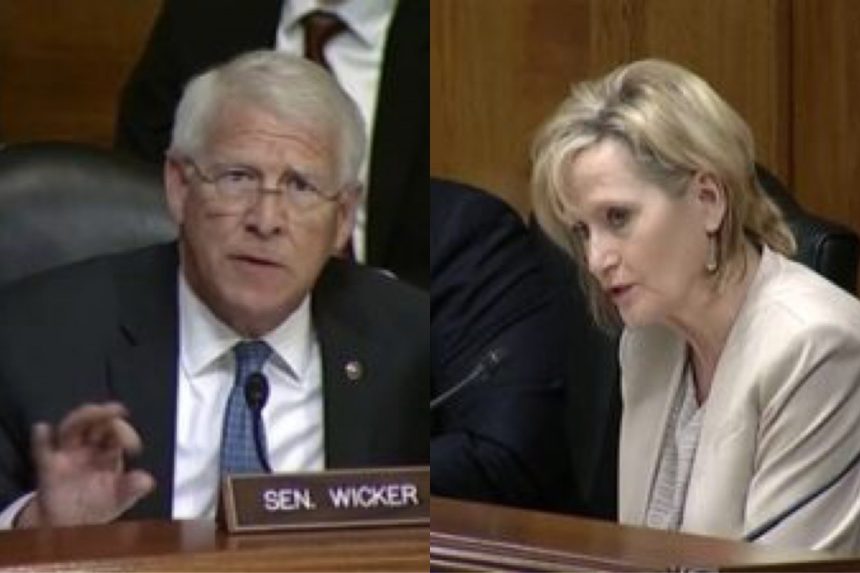In April, the EPA began a review of the 2008 veto of the Yazoo Pump Project in the midst of historic flooding in the Mississippi Delta. Currently, over 500,000 acres remain flooded, and wildlife and agriculture in the area have been greatly impacted.
U.S. Senators Cindy Hyde-Smith and Roger Wicker have now introduced legislation that would nullify the veto that halted the final aspects of the long-awaited flood control project for the South Mississippi Delta.
Related: EPA reviewing 2008 veto of ‘Yazoo Pump Project’
The Senators addressed the flooding disaster in the Yazoo Backwater Region in speeches to the Senate Wednesday and introduced the Flood Reduction, Wildlife Habitat, and Water Quality Improvement Act of 2019 as they continue to press the Environmental Protection Agency (EPA) and U.S. Army Corps of Engineers to complete congressionally-authorized work on a critical pump project for the region.
During their remarks on the Senate floor, the Senators stated that if the pumps were already in place, much of this devastation could have been avoided.
“The people of Mississippi are beyond ready to see this crisis resolved. They are, frankly, extremely frustrated with the federal government. More than 17,000 people have signed a petition to remove an EPA 2008 regulatory veto preventing construction of the pumps,” Hyde-Smith said. “It is time for the federal government to make good on its promises. It is time to construct the pumps. While we work toward that goal, this legislation proposes commonsense reforms to the laws governing the regulation of our nation’s waters and permitting process.”
The pump project was vetoed due to environmental concerns, but Hyde-Smith went on to say that the pumps would actually help save the environment.
“The arguments that I have heard in opposition to this project are not valid,” she said. “Pumps will save lives, property, local infrastructure, wildlife and the environment.”
Wicker explained that when it comes to projects like the pumps, the government should not get in the way.
“The recent flooding in the Yazoo Backwater area has been devastating for Mississippians who have seen their property destroyed and livelihoods disrupted,” Wicker said. “This tragedy could have been avoided had the Environmental Protection Agency not vetoed the Yazoo Backwater Area Pumps Project over a decade ago. This legislation would help to right these wrongs by ensuring that important flood control projects – especially those approved by Congress – cannot be delayed indefinitely by government bureaucracy.”
While addressing his colleagues, Wicker discussed the current situation in the Delta.
“If you’re there today, you see dead wildlife floating on the flood water. You see coffins that had been buried floating on the surface, and the tragedy of this is that it is entirely preventable,” he said.
The Flood Reduction, Wildlife Habitat, and Water Quality Improvement Act would reform section 404 of the Clean Water Act to prohibit EPA from vetoing a Corps of Engineers flood control project specifically authorized by Congress. If enacted, the legislation would also immediately nullify any prior veto determinations made by EPA that resulted in severe flooding and damage to life and property.
The project, which was authorized by Congress in 1941, is the last remaining unconstructed feature of a 77-year flood control effort in the Lower Mississippi Valley.
Hyde-Smith and Wicker stated that they will continue to work with the Trump Administration, EPA and the Corps of Engineers to overturn or amend the 2008 veto and allow work to proceed on the pump project.
While formal damage assessments are pending, the 2019 flood in the South Delta has caused severe damage to more than 600 households, displaced nearly 400 families, and caused agricultural losses expected to exceed $800 million. Infrastructure damage in the region is also extensive.








